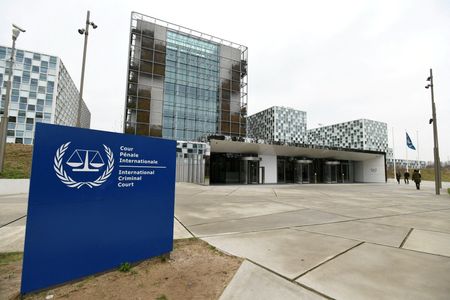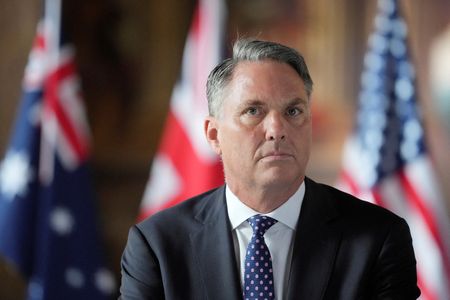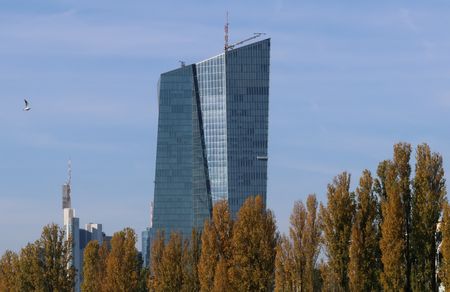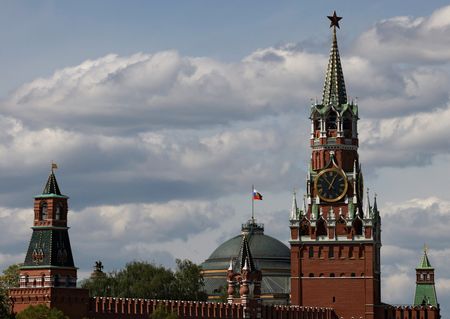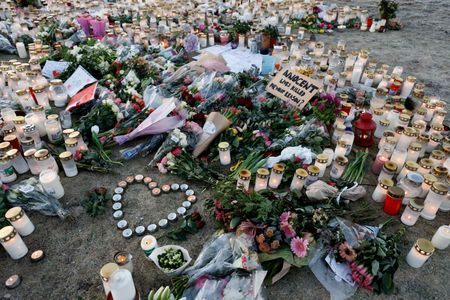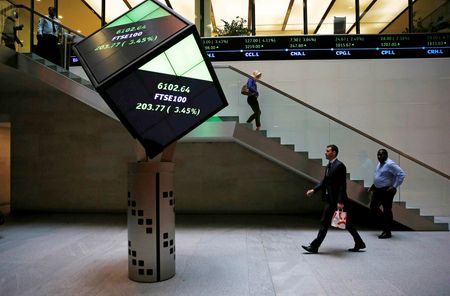By Steve Holland and Bart H. Meijer
WASHINGTON (Reuters) -U.S. President Donald Trump has authorized economic and travel sanctions targeting people who work on International Criminal Court investigations of U.S. citizens or U.S. allies such as Israel, drawing condemnation – but also some praise – abroad.
The ICC is a permanent court that can prosecute individuals for war crimes, crimes against humanity, genocide and the crime of aggression against the territory of member states or by their nationals.
Trump’s move, on Thursday, coincided with a visit to Washington by Israel’s Prime Minister Benjamin Netanyahu, who is wanted by the ICC over the war in Gaza.
The ICC condemned the sanctions.
“The court stands firmly by its personnel and pledges to continue providing justice and hope to millions of innocent victims of atrocities across the world, in all situations before it,” it said on Friday.
The ICC also called on its 125 member states to support its staff.
Many in Europe did so.
“Sanctioning the ICC threatens the Court’s independence and undermines the international criminal justice system as a whole,” Antonio Costa, the president of the European Council of EU leaders, wrote on social media platform Bluesky.
The Netherlands, the host nation of the court based in The Hague, also said it regretted the sanctions, as did European Commission chief Ursula von der Leyen.
“The court’s work is essential in the fight against impunity,” Dutch Foreign Minister Caspar Veldkamp said in a post on X.
But Hungarian Prime Minister Viktor Orban, a staunch ally of Trump, said the sanctions showed it might be time to leave the ICC.
“It’s time for Hungary to review what we’re doing in an international organization that is under U.S. sanctions! New winds are blowing in international politics. We call it the Trump-tornado,” he said on X.
ASSET FREEZES, TRAVEL BANS
Court officials convened meetings in The Hague on Friday to discuss the implications of the sanctions, a source told Reuters on condition of anonymity.
The U.S. sanctions include freezing any U.S. assets of those designated and barring them and their families from visiting the United States.
It was unclear how quickly the U.S. would announce names of people sanctioned. During the first Trump administration in 2020, Washington imposed sanctions on then-prosecutor Fatou Bensouda and one of her top aides over the ICC’s investigation into alleged war crimes by American troops in Afghanistan.
The United States, China, Russia and Israel are not members of the ICC.
Trump signed the executive order after U.S. Senate Democrats last week blocked a Republican-led effort to pass legislation setting up a sanctions regime targeting the war crimes court.
The court has taken measures to shield staff from possible U.S. sanctions, paying salaries three months in advance, as it braced for financial restrictions that could cripple the war crimes tribunal, sources told Reuters last month.
In December, the court’s president, Judge Tomoko Akane, warned that sanctions would “rapidly undermine the court’s operations in all situations and cases, and jeopardize its very existence”.
Russia has also taken aim at the court. In 2023, the ICC issued an arrest warrant for President Vladimir Putin, accusing him of the war crime of illegally deporting hundreds of children from Ukraine. Russia has banned entry to ICC chief prosecutor Karim Khan and placed him and two ICC judges on its wanted list.
(Reporting by Steve Holland in Washington, Bart Meijer in Amsterdam, Andrew Gray, Sudip Kar-Gupta in Brussels; writing by Michelle Nichols and Ingrid Melander; Editing by William Maclean and Alex Richardson)

